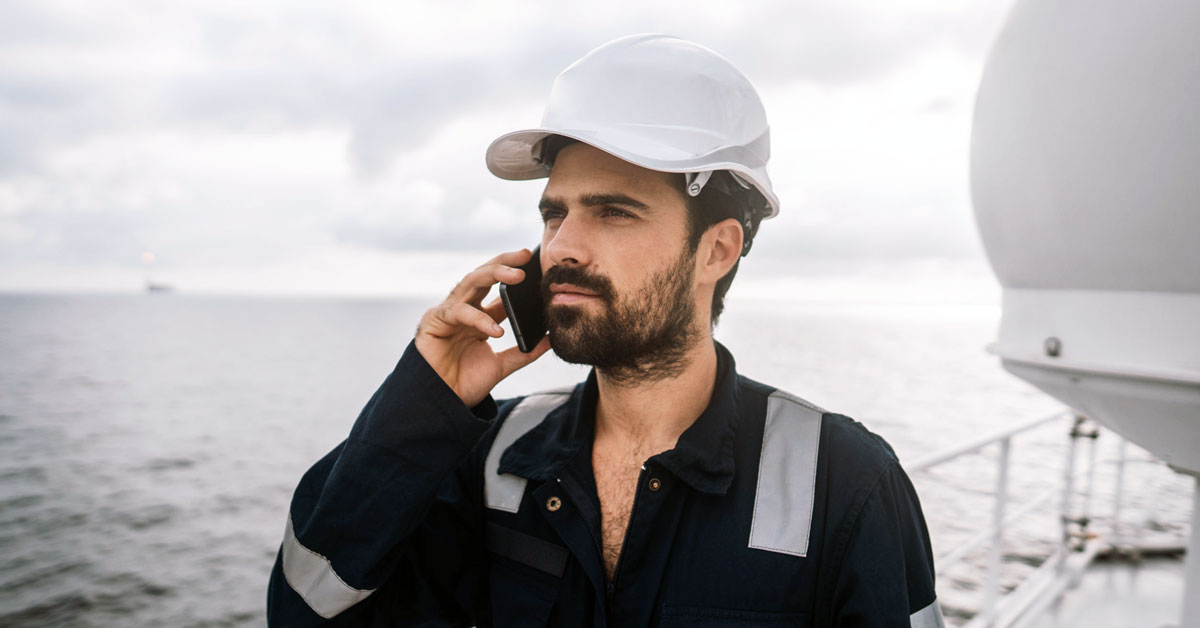So you wanna be a Deck Officer
by StudyMalaysia.com on November 12, 2020 | Top Stories, Career Guide

Have you always wanted to work on board a ship? Are you physically fit and not afraid to step out of your comfort zone? Are you looking for a career with good long-term prospects and a good pay? Does hard work and following orders sound like what you’d be happy doing? Here’s a career option that could be right for you.
The job of a Deck Officer
Deck Officers work as parts of a team with each member being assigned a crucial task to maintain the ship in top shape and do the several navigational tasks related to sailing. There’s a distinct hierarchy within the crew—the rank of each individual Deck Officer is assigned based on seniority and performance.
Among the responsibilities of Deck officers are to:
- navigate the vessel using a range of satellite and radar systems and equipment
- check weather and navigation reports and take appropriate action
- coordinate the safe loading, storage and unloading of cargo
- manage the care and safety of passengers (if you're working on a ferry/cruise ship)
- supervise the operation and maintenance of deck machinery, e.g. winches and cranes
- manage ship communication systems
- monitor and maintain safety, firefighting and life-saving equipment
- oversee the ship to ensure that the highest levels of health and safety are maintained
- maintain legal and operational records such as the ship's log
- keep up to date with developments in maritime legal, commercial and political matters.
Is this job for you?
Seafaring is not for the shy, intimidated and fearful. A Deck Officer needs to possess courage and boldness as the job requires stepping out of your comfort zone.
As a Deck Officer, you will work with varying cultures and must be willing and able to adapt to connect and work effectively. The ability to thrive under pressure is important.
A collaborative spirit is vital in order to work effectively on board a ship that consists of co-workers with various responsibilities and ranks. As such, to be a Deck Officer you need to be a good team player and be able to think on your feet.
You must have good eyesight and be physically fit, as you will have to pass a medical before you can start training.
The interest code for this career is ERC (Enterprising, Realistic and Conventional).
Enterprising — Enterprising occupations frequently involve starting up and carrying out projects. These occupations can involve leading people and making many decisions. Sometimes they require risk taking and often deal with business.
Realistic — Realistic occupations frequently involve work activities that include practical, hands-on problems and solutions. They often deal with plants, animals, and real-world materials like wood, tools, and machinery. Many of the occupations require working outside, and do not involve a lot of paperwork or working closely with others.
Conventional — Conventional occupations frequently involve following set procedures and routines. These occupations can include working with data and details more than with ideas. Usually there is a clear line of authority to follow.
Work Styles
To be successful in the role of a deck officer, you need to:
- the ability to work well with others
- sensitivity and understanding
- to be thorough and pay attention to detail
- patience and the ability to remain calm in stressful situations
- the ability to use your initiative
- excellent verbal communication skills
- physical skills like movement, coordination, dexterity and grace
- observation and recording skills
- to be able to carry out basic tasks on a computer or hand-held device
Work Values
Deck Officers enjoy being able to work on their own and make decisions. You value recognition and consider advancement and potential for leadership prestigious. Job security and good working conditions are important to you.
Work Environment
Working on a ship or vessel means long periods of time spent away at sea. On-board living conditions are usually of a high standard, with good leisure and other facilities; however, due to such close living and working conditions, you'll need to work well within a team.
Weather conditions may make working uncomfortable. The crew may be subject to extreme temperatures depending on where they sail. You may need to wear a uniform and protective clothing.
Places of Employment
Deck Officers can be hired by private companies such as cruise lines, water transportation companies, or even the Federal Government to work as part of the Coast Guard. They work in water transport vessels such as cruises, riverboats, merchant ships, oil, gas and chemical tankers, or any type of self-propelled water vehicle that transports passengers or cargo across oceans, coasts, or inland waters.
You can explore both onshore and offshore positions with shipping companies, port authorities, maritime insurance companies and shipping brokers.
Often, the maritime facility you’re training with will arrange for your job placement after you’ve completed the training.
Tired of being at sea? There are many opportunities for deck officers on shore that include:
- Ship management and fleet operations
- Surveying ships to check seaworthiness, for repair and maintenance purposes, to check cargo details
- Ports and harbour work
- Training the seafarers of the future
- Ship repair, marine equipment production
- Marine insurance, ship classification, maritime law and arbitration
Education and Training Qualifications:
In Malaysia, those interested in a career as a deck officer can enrol at a maritime training facility like Akademi Laut Malaysia (ALAM). ALAM offers a Diploma in Nautical Studies
Watch these videos!
Sources used in this article:
Copyright © Webway e-Services Sdn Bhd (November, 2020)
You May Also Be Interested In...
�Why SPM Students are choosing Diplomas Over Degrees
![�Why SPM Students are choosing Diplomas Over Degrees - StudyMalaysia.com]() Do you prefer to learn by doing rather than attending lectures? Do you...
Do you prefer to learn by doing rather than attending lectures? Do you...Tips on Choosing the Right University
![Tips on Choosing the Right University - StudyMalaysia.com]() For most students the transition from high school to university and th...
For most students the transition from high school to university and th...How to Embark on a Successful Career in Marketing
![How to Embark on a Successful Career in Marketing - StudyMalaysia.com]() Do even the most mundane of advertisements pique your interest? Do you...
Do even the most mundane of advertisements pique your interest? Do you...Ten Careers In Sports You Should Consider (And You Don't Need To Be An Athlete)
![Ten Careers In Sports You Should Consider (And You Don't Need To Be An Athlete) - StudyMalaysia.com]() So you love sports? You want a career in sports but you're not qu...
So you love sports? You want a career in sports but you're not qu...Studying for the UEC and your education pathway at tertiary level
![Studying for the UEC and your education pathway at tertiary
level - StudyMalaysia.com]() The Unified Examination Certificate (UEC) is a standardised examinatio...
The Unified Examination Certificate (UEC) is a standardised examinatio...如何申请奖学金
![如何申请奖学金 - StudyMalaysia.com]() 你有没有想过申请奖学金?如果你曾想过,并且不知�...
你有没有想过申请奖学金?如果你曾想过,并且不知�...





























